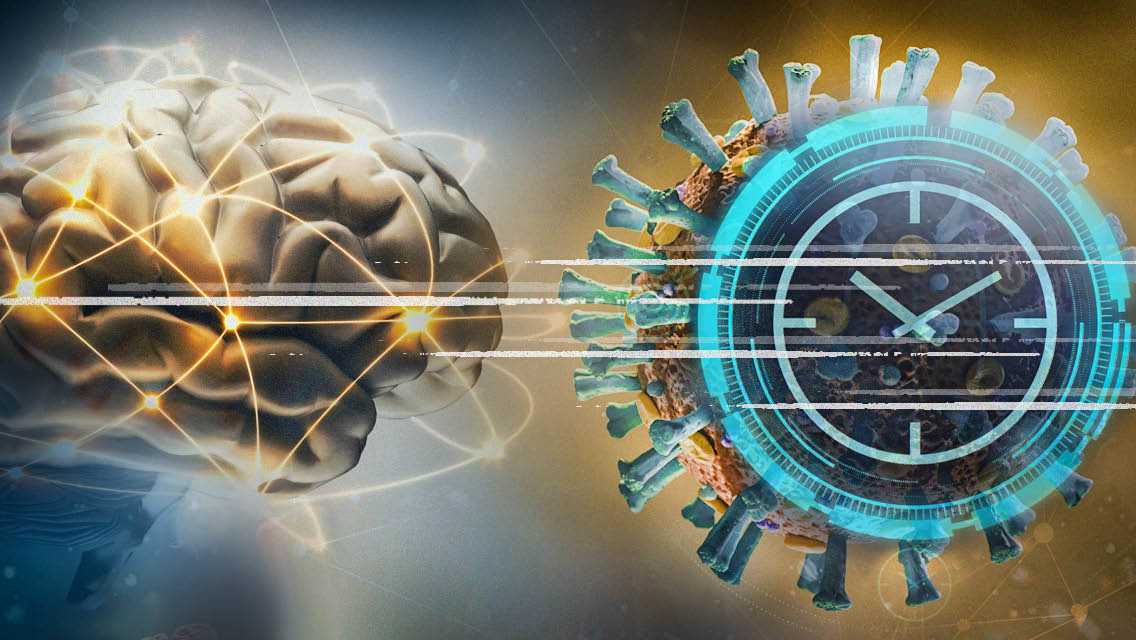Brain Health
LATEST STORIES
Sleep and Resiliency: A Guide to This Essential Recovery and Repair Window (Performance & Longevity Series)
Learn about the critical role of sleep for health and longevity, the barriers that might be preventing you from getting enough quality sleep, and practical strategies for sleep improvement.
Aging With Brain Power: How to Boost Your Mental Acuity and Cognition (Performance & Longevity Series)
Explore the key factors that affect cognitive health, and learn strategies for protecting your brain and optimizing mental acuity.
How One Man Found Strength Through His Struggle With Migraines
After dealing with debilitating migraines for years, David Fleming created a product that provided relief — and allowed him to move forward to the ultimate stage: American Ninja Warrior.
How to Recover From Vertigo and Inexplicable Dizziness
Dizziness disorders, including vertigo, often occur without a clear cause — and when they persist, they can seriously hamper quality of life. Mind-body methods might hold the key to recovery.
How Melatonin Protects Your Brain
Melatonin does more than just regulate your sleep cycle — it also helps keep your brain healthy. Here’s how.
Breaking Insulin Resistance: Your Guide to Blood-Sugar Mastery (Performance & Longevity Series)
Understand the widespread and critical issue of insulin resistance, including its implications for health and the steps you can take to monitor and manage your blood sugar.
An Eyewear Solution for Migraine Symptoms?
Learn if this new technology may be right for you.
3 Ways to Eat for Mental Health
Try these nutritional strategies to support your psychological and emotional well-being.
New Study Finds Microplastics Can Cross Blood-Brain Barrier
Our brains may be up to 0.5 percent plastic pollution — which may play a role in dementia — according to new research.
How Does Sugar Affect Mood?
Learn more about the effect that sugar and inflammation have on your mood.
Mapping the Brain’s Many Mystery Cells
Discover how researchers are linking brain-cell types to neuropsychiatric disorders like schizophrenia and Alzheimer’s.
8 Powerful Ways Exercise Benefits the Brain
The benefits of physical activity are more than muscle-deep. Moving your body builds and conditions your gray matter, making you smarter, happier, and more resilient.
Train Your Brain — and Improve Your Sports Performance — With Neuro Optimization
The next frontier in athletic performance? Neurological optimization. Here’s why.
Can Brain Retraining Help Me Recover From Long COVID?
Lingering symptoms from long COVID and other chronic-pain conditions might result from faulty feedback loops in the nervous system. Brain training can help resolve them.
Can Fish Oil Supplements Help Moderate the Inflammation Response?
The role of omega-3s in managing chronic inflammation and promoting long-term health.
Listen Up: Why Taking Care of Your Hearing Health Matters
One in four people are projected to have some degree of hearing loss by 2025, according to the World Health Organization — and hearing loss is connected to several deeper health impacts, including cognitive decline and cardiovascular function.
How Following Ultradian, Circadian, and Infradian Rhythms Can Boost Your Health
Tune into natural rhythms to improve your energy, concentration, and sleep.
How Functional Neurology Can Improve Fitness Performance — For Everyday Athletes and Professionals Alike
Performing well in fitness endeavors takes consistent effort — yet even with persistent dedication, there may be underlying causes preventing you from performing at your best.
How to Treat Dizziness and Vertigo
A functional neurologist offers tips on diagnosing — and treating — dizziness and vertigo.
A Clearer View of Health: A Guide to Understanding Comprehensive Bloodwork
Learn about some additional blood markers you can have tested beyond the traditional panels and why they matter for painting a more complete picture of your current state of your health.
12 Key Nutrients for Mood Support
According to nutritional psychiatrist Drew Ramsey, MD, these are the most important nutrients for supporting your mental health.




















